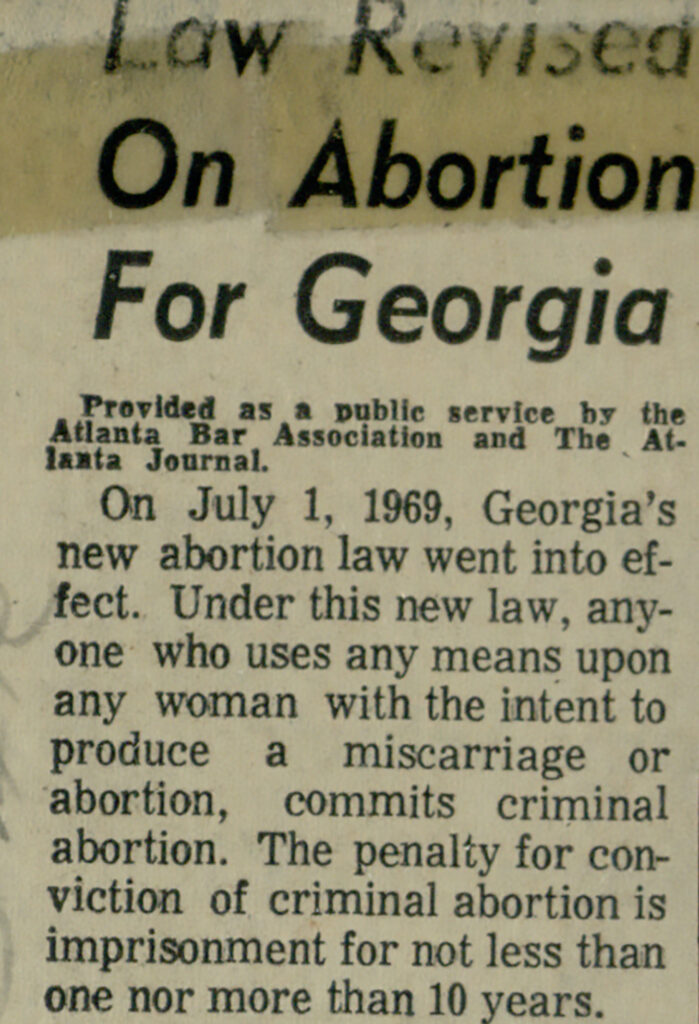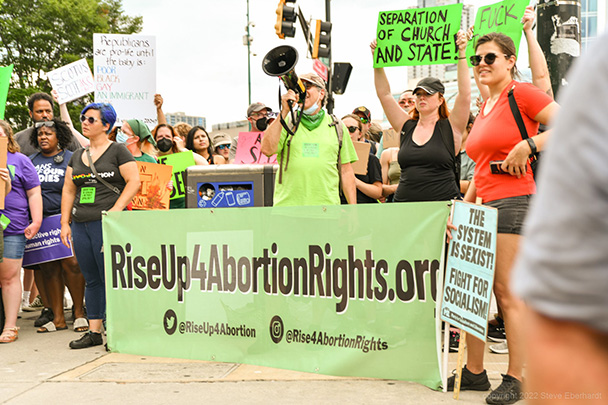Doe v. Bolton

A Georgia woman, whose three young children had been removed from her home, sought an abortion because her doctor advised her to terminate her pregnancy due to psychiatric illness; Georgia law at the time restricted abortion access to cases of rape, serious fetal deformity, or possibility of severe injury to the mother and required women to get approval from their personal physician, two consulting physicians, and a hospital committee. Justice Blackmun reaffirmed his statements from Roe v. Wade and added that many of the barriers to abortion care mentioned in the case (like requiring that all women seeking abortions must be residents of Georgia) violated the “privileges and immunities” clause of the U.S. Constitution.

January 22, 1973
In a landmark 7-2 decision, the U.S. Supreme Court ruled that abortion was a legal and constitutional right, protected under the due process clause of the 14th Amendment to the Constitution. This ruling arose after hearing arguments from two crucial cases: Roe v. Wade and Doe v. Bolton. This decision granted women the freedom to make decisions about their reproductive health and futures.
THE END OF ROE JUNE 24, 2022
Nearly 50 years after the initial decision to protect abortion rights, the U.S. Supreme Court ruled in favor of a Mississippi law that banned all abortions after 15 weeks, via Dobbs v. Jackson Women’s Health Organization. This 6-3 vote overturned Roe v. Wade, putting an end to over 49 years of legal and accessible abortions.






